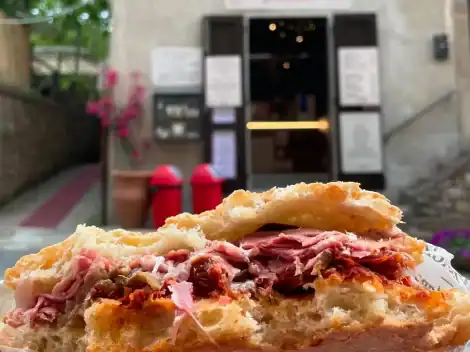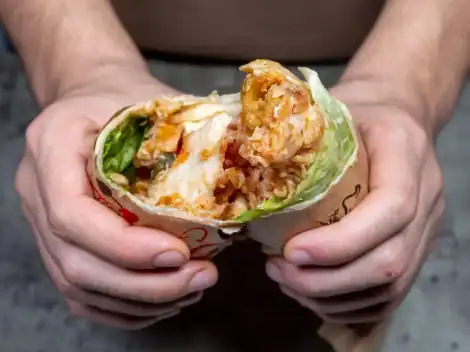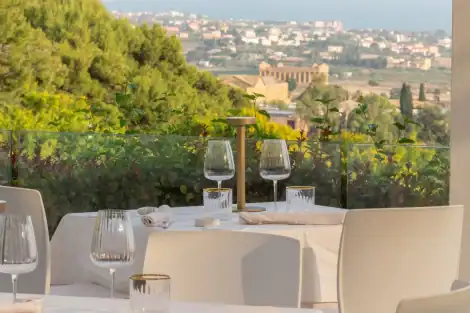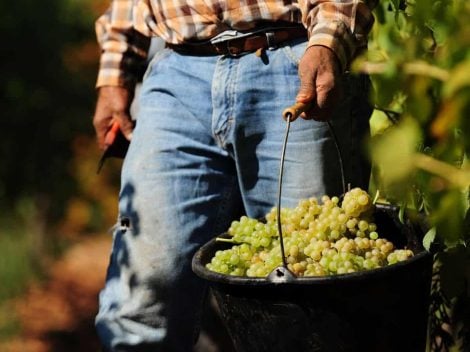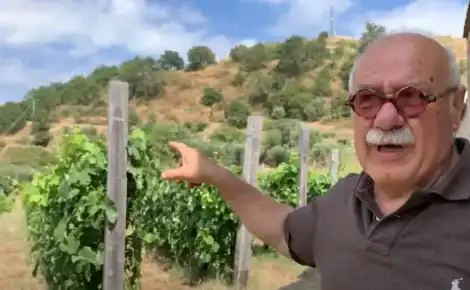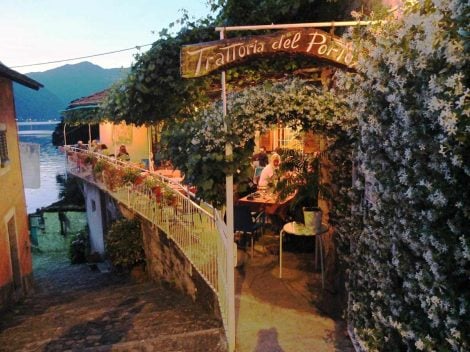Kombucha is like Brazil; once you know it, you have to accept the risk of never turning back. However, João Penariol Junior's journey is reverse: he leaves São Paulo to live in Italy, in Montebelluna, in the province of Treviso. It was precisely from there that his grandfather, Giacomo Penariol, set off 80 years ago. After World War II, he moved to Brazil, opened a trattoria near São Paulo, complete with a chapel dedicated to Saint Anthony. "My grandfather Giacomo's dream was to produce beer and other fermented products, so he asked for help from a friend, an expert from Montebelluna, who, unfortunately, was struck by the plague during the journey. He died at sea. I like to think that my project is the continuation of his dream," João begins as he perfects the fermentation of rose and hibiscus kombucha in his laboratory in Camisano Vicentino.
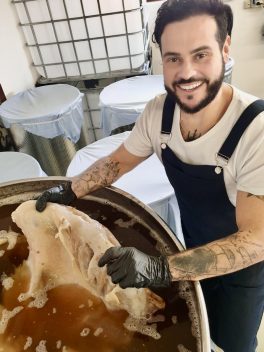
"I was born in Brazil, where I opened a sweets shop, selling only brigadeiro, typical chocolate candies, with many variations. It went well, and I opened several franchises, but I wanted something else. I needed something I felt was mine." The passion for fermented tea, in this case, also comes from North America. "I fell in love with kombucha during a vacation in the United States, took some courses, and started producing it in Brazil in 2015; I was among the first. Today, the country is one of the largest kombucha producers in the world, after the United States. Brazilians are obsessed with healthy products that aid weight loss; they consume a lot of it." In 2017, Joao returned to Veneto, and while waiting for the bureaucratic process to obtain citizenship, he resumed his activity. "I made it at the home of a fermenter in Treviso, but I couldn't keep up with the demand. Initially, I was supposed to stay for three months, but I felt a particular pull to Italy. After all, I'm not a typical Brazilian; I don't like soccer or carnival; I prefer to look for old armchairs in an antique shop. Here, it feels like home to me."
Italian-Brazilian flavors
In 2017, the adventure began with the BOAZ brand, which offers a wide collection of kombuchas blending Italian flavors and Brazilian fruits. "Today, we sell about 12,000 bottles a month; the demand is very strong. In Italy, there are no production regulations; I adhere to those spread in Brazil, so the alcohol content is less than 0.5% (in Italy, it can go up to 1.2%). I start with a blend of green and black tea, low sugar content, and a fermentation technique developed over time that allows me to stabilize the product, which is neither microfiltered nor pasteurized, to remain stable even outside the refrigerator." During fermentation, he uses chromotherapy and music, with acoustic frequencies at 432 Hz. "When the ASL inspectors arrived, they thought I was crazy, but I believe that the energy released by music somehow reaches the final product." Joao drinks two liters of kombucha a day: "I only need two days of abstinence, and I feel my energy waning; I see the effects on my skin. Kombucha is not a trend but a conscious choice and is in line with all the shifts we are experiencing from food to wine, where people seek the most natural labels possible. It's the answer to Coca-Cola, tea full of sugars and preservatives."
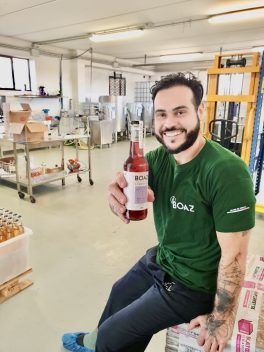
Like on Rio's beach
"On any beach in Rio, you'll hear guys saying 'olha o mate,' which means 'look at the mate.' That's a mate with freshly roasted leaves, with a taste resembling caramel. We drink it like this in Rio and São Paulo. I decided to start producing it in Italy when a friend let me taste a mate produced in Germany. No, it was really too much. I don't use sugars, only stevia leaves to balance it out; it's an energizing drink, the caffeine is about a third of that in coffee, but you can feel it." The resulting product is very interesting, with bitter and sweet notes in perfect balance and a dry and invigorating finish. Among the products that Joao directly imports from Brazil is jabuticaba, a dark fruit that he uses along with blackberries and blueberries. An explosion of red fruits, very aromatic. "I want to bring unknown products to Europe, mix my Italian-Brazilian roots, so I also mix passion fruit and lemongrass." If the rose and hibiscus version seems excessively aromatic to us, we greatly appreciated the mint, rosemary, and ginger kombucha: very fresh, vivid, with overwhelming mint sensations. "Try it with gin too, and you'll be pleasantly surprised," suggests João. We were also surprised by the character of the Cocoa and Hazelnut version with orange zest, dry and biting with suggestive and original toasted and bitter notes, not for everyone. "Indeed, it's the hardest to sell, also because people are used to experiencing those sensations in hot drinks and not cold ones."
Closing the circle
There are also other products in the pipeline, always based on the same philosophy, starting from guaraná and açaí. "Of course, I miss Brazil and the energy of the people who know how to put you at ease in a special way. But I find it in kombucha. And I have a very clear idea: to buy back my grandfather's house, which is falling apart in Montebelluna. Renovate it and move my laboratory there."

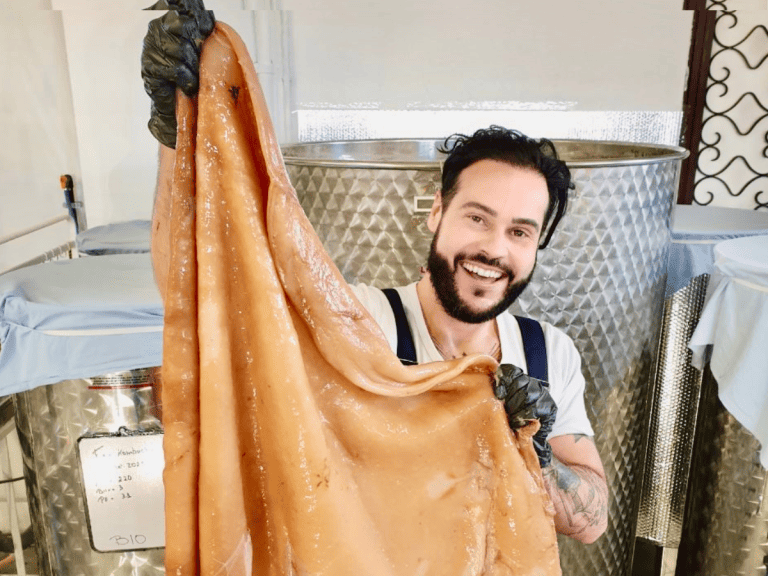
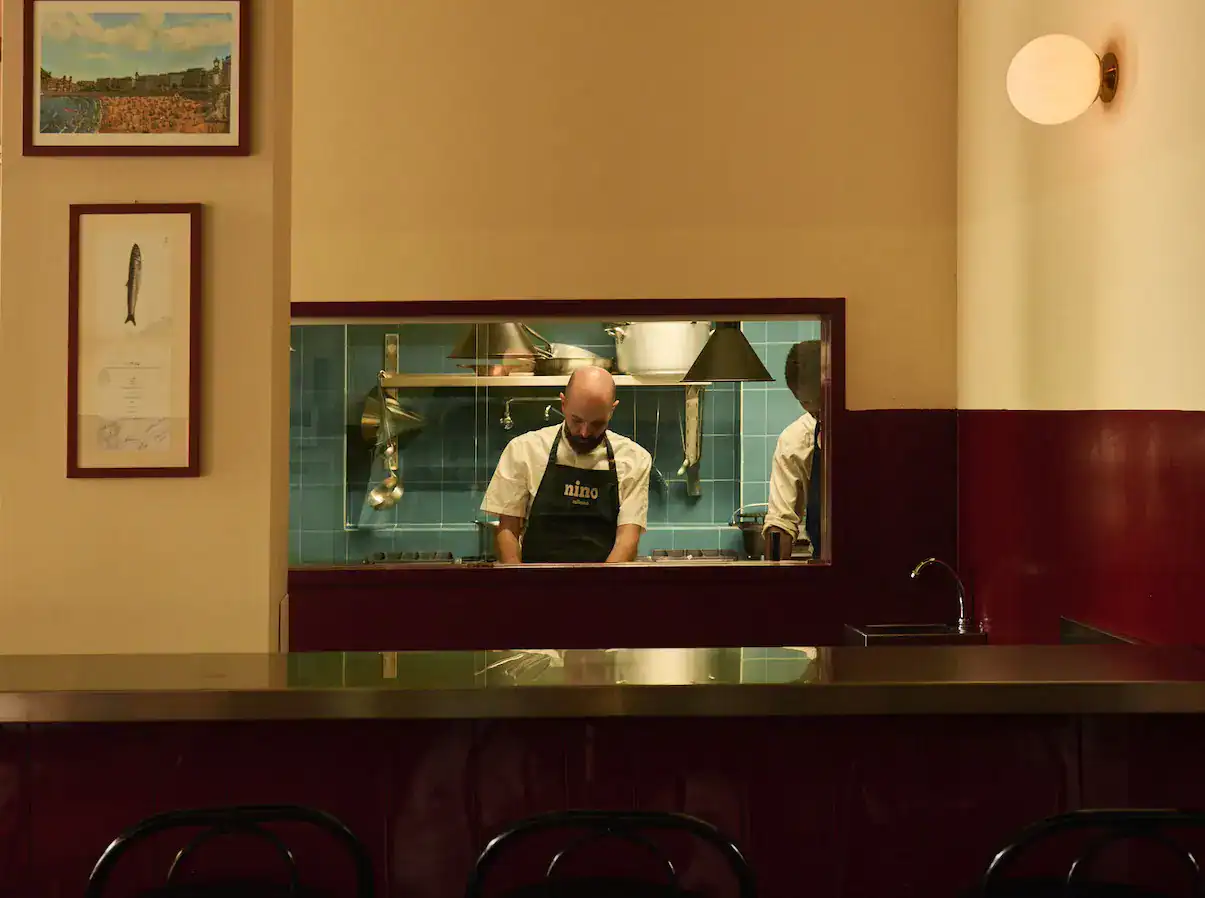 Diego Rossi of Trippa opens a new osteria: what you can eat at Nino Osteria con Cucina in Milan
Diego Rossi of Trippa opens a new osteria: what you can eat at Nino Osteria con Cucina in Milan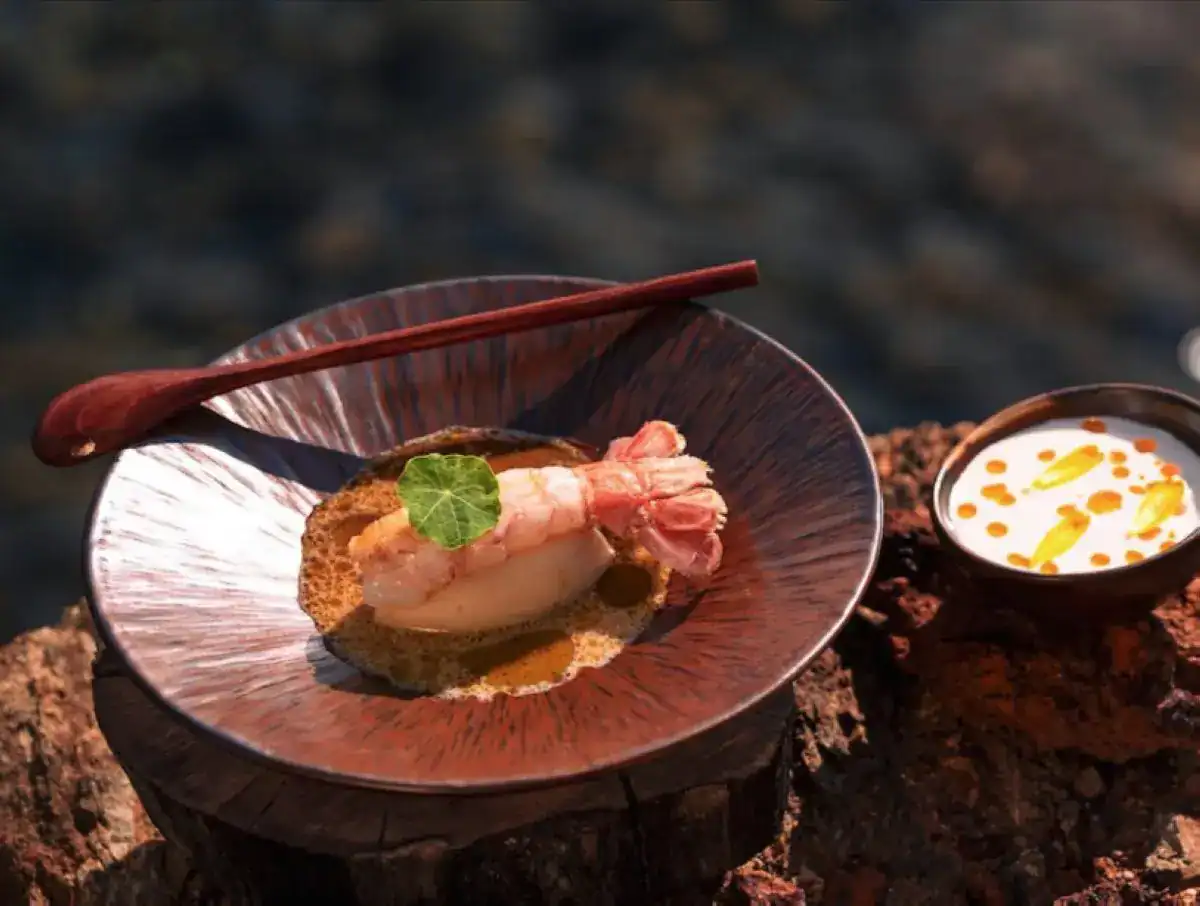 How you eat at Sentiero, the restaurant Elba Island was missing
How you eat at Sentiero, the restaurant Elba Island was missing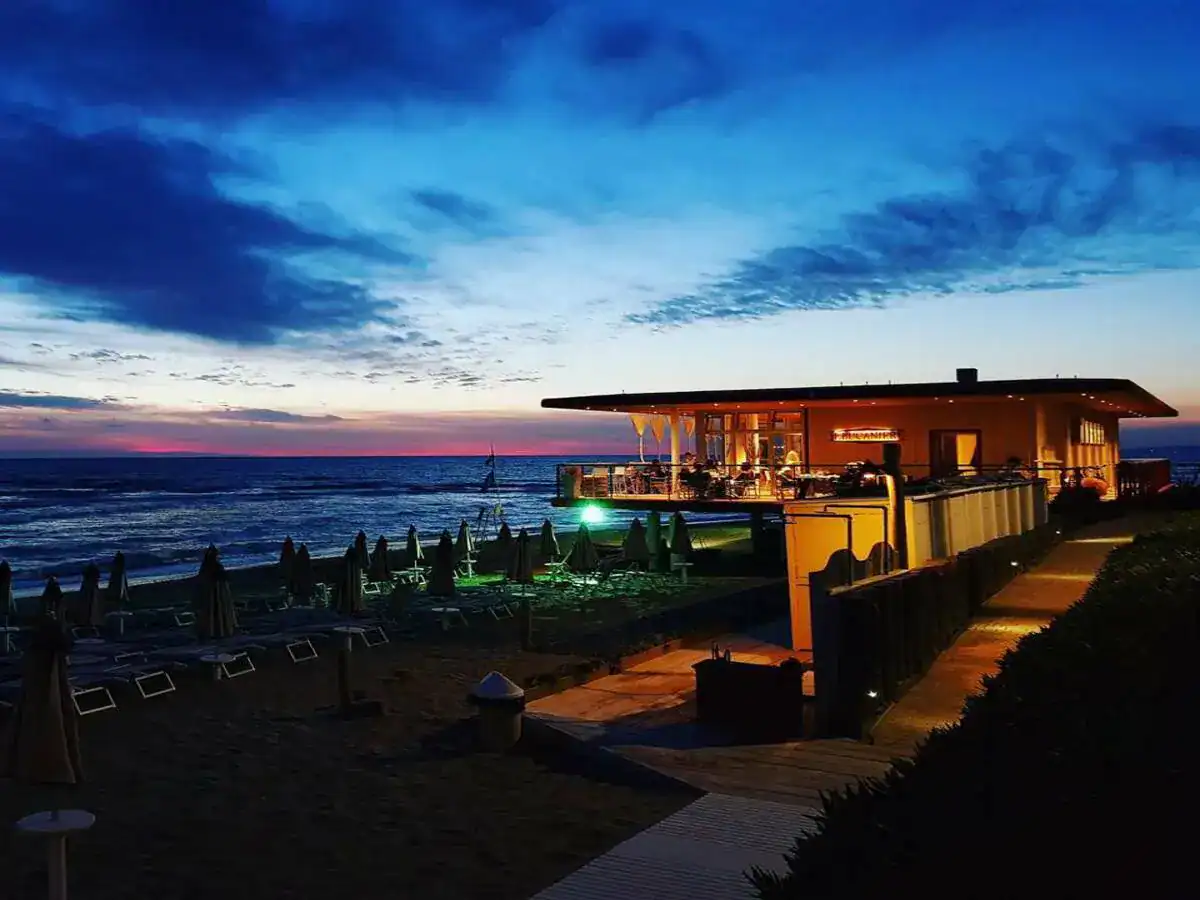 Eating by the sea in Tuscany. The best beachfront restaurants selected by Gambero Rosso
Eating by the sea in Tuscany. The best beachfront restaurants selected by Gambero Rosso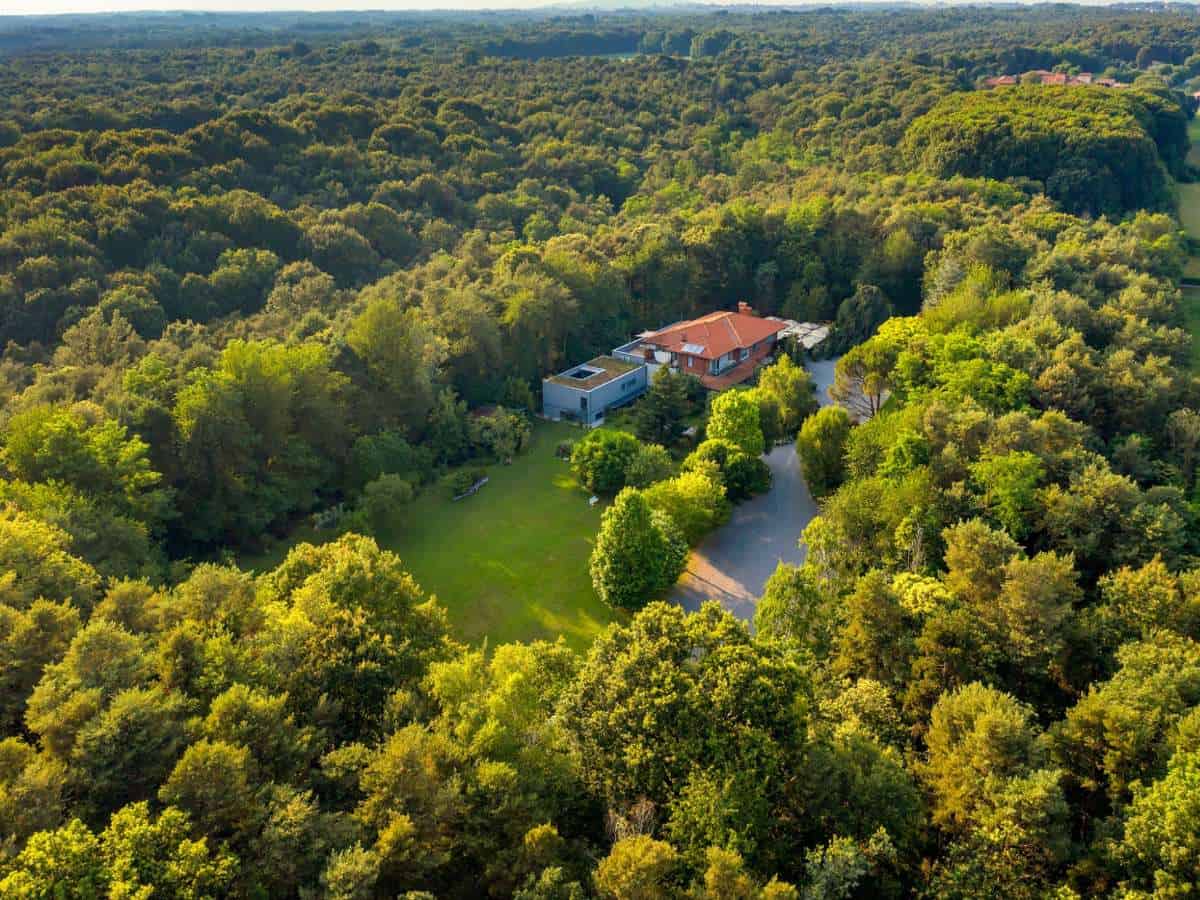 Contemporary cuisine, farmhouses and pinewoods. The hidden restaurant in the nature park near Como
Contemporary cuisine, farmhouses and pinewoods. The hidden restaurant in the nature park near Como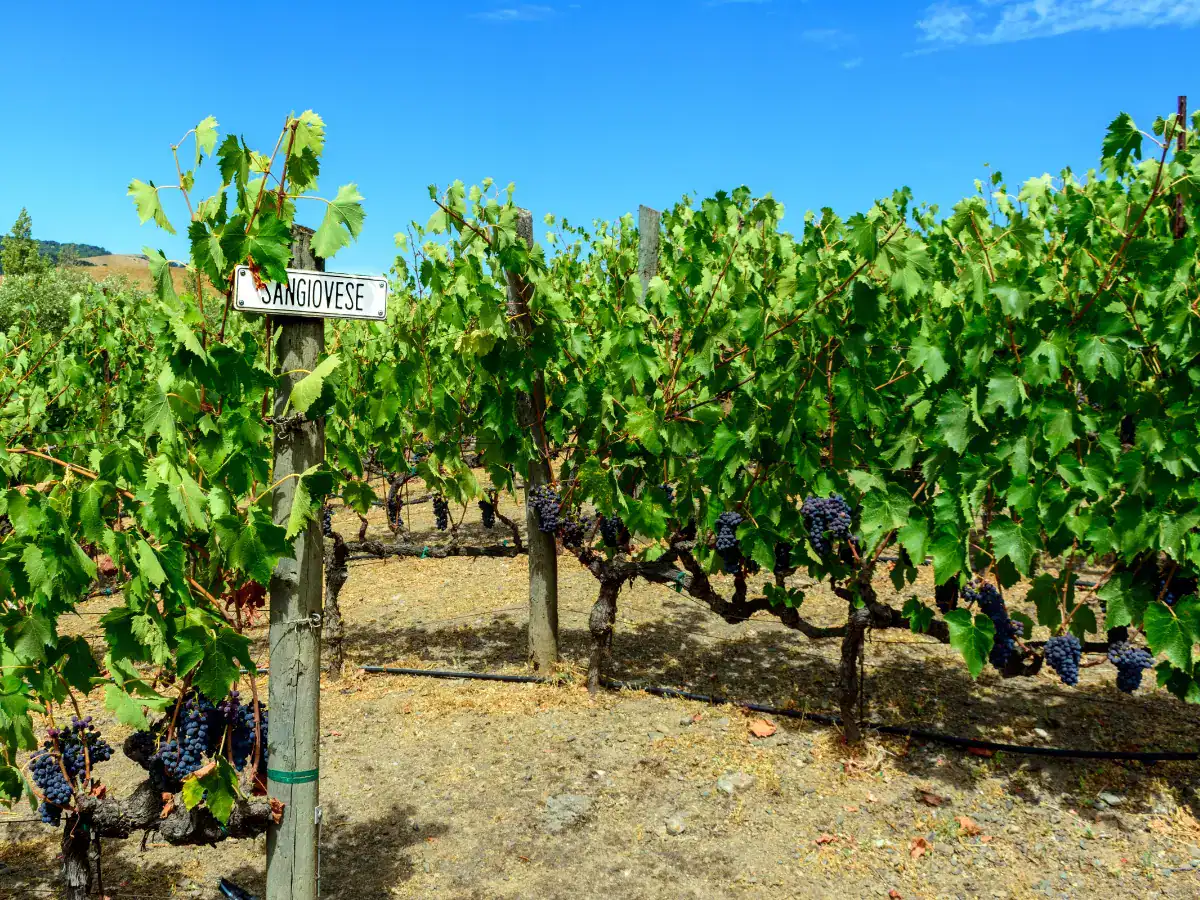 California rediscovers Sangiovese. A brief history of the revival of a forgotten grape variety in the United States
California rediscovers Sangiovese. A brief history of the revival of a forgotten grape variety in the United States